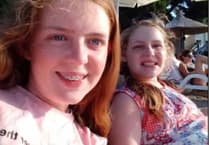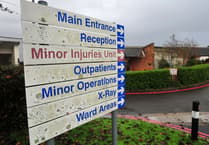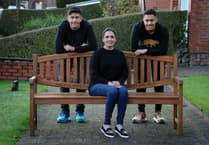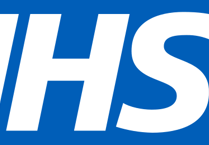THOUSANDS of women are being urged to attend NHS breast screening appointments as new figures today show that, despite a slight increase in uptake in the last year, over a third of women still did not take up the potentially lifesaving offer.
In 2022-23, a total of 1.93 million women aged 50 to 70, 64.6per cent, attended screening appointments, within six months of invitation, out of the 2.98 million invited to book a check-up – an increase in uptake on 2021-22, 62.3per cent.
However 35.4per cent of women did not attend their appointments following an invitation, increasing to 46.3per cent of women who were being invited for the first time.
The screening programme led to cancers being detected in 18,942 women across England in 2022-23, which otherwise may not have been diagnosed and treated until a later stage.
NHS England is calling for women to put their health at the top of their to-do list and come forward for breast screening when invited.
The call comes following a major £70m Government investment in the Digital Transformation of Screening initiative to modernise screening services over the next three years.
The breast screening service will be one of the first to benefit, with an ambition to provide more tailored communications and more booking options for women, including online and call centre booking.
This will make it easier than ever before for women to book and manage their appointments.
Published by NHS England, the NHS Breast Screening Programme, England 2022-23 report also found that uptake was highest in the South East at 68 per cent and lowest in London at 55.4 per cent.
Dr Louise Wilkinson, Consultant Radiologist and National Specialist Advisor for Breast Screening at NHS England, said: ‘Around one in seven women are diagnosed with breast cancer during their lifetime, and detecting it at an early stage helps give people the best chance of successful treatment.
‘Today’s figures show that 18,942 women were diagnosed and able to seek treatment because they attended breast screening check-ups last year.
‘We know that lives are saved when cancers are caught early.
‘I know life gets busy, but I would urge anyone who has received a breast screening invitation - even if you received the invite weeks or months ago – to put your health at the top of your to-do list and book an appointment at your local screening service or mobile unit. It could save your life.’
Health Minister Maria Caulfield said: ‘It is vital that women come forward for breast screening when invited, as early cancer diagnosis can make all the difference.
‘We’re making it as easy as possible to attend appointments and screening rates are rising, but there are still too many women missing out so I urge everyone receiving that text invite or that letter to book a check-up – it could be lifesaving.’
A woman’s risk of getting breast cancer goes up as they get older, with around four out of five breast cancers found in women over 50 years old.
Deborah Tomalin is the Director of Screening at NHS England.
Now aged 60, she first discovered she had breast cancer after her second routine mammogram at age 53.
She was diagnosed with early stage cancer, underwent a mastectomy and lymph node removal, and was given longer term oral medication as the cancer was a type that was found to be oestrogen dependent.
She is thankfully now all well. She encourages anyone who is invited to come forward for their breast screening.
Deborah said: ‘Nobody wants to hear they have breast cancer. It turns your world upside-down and is such a worrying time for you and your family.
‘But I was lucky that my cancer was caught early by screening and so the outlook has been bright for me.
‘I completely understand going for breast screening can feel daunting – some people might worry that it will be painful or be embarrassed to take your clothes off, but I can reassure you that the actual mammogram takes just a few minutes and any discomfort does not last long and the staff all look after you so well.
‘I encourage anyone who has been invited to come forward for screening as it can find cancer at an early stage and it really can save your life.’
Under the NHS Breast Screening Programme, eligible women will usually receive their first routine invitation for breast cancer screening between the ages of 50 and 53 and will normally be invited every three years until their 71st birthday.
NHS England is also asking women of all ages to be aware of their breast health and to know how to check themselves for cancer symptoms.
Being ‘breast aware’ means getting to know how your breasts look and feel at different times and telling your doctor straight away if you notice any unusual changes.
It takes only a few minutes to perform and can help detect breast cancers at an earlier stage.
It is important that women continue to look at and check their breasts regularly, even if they have had a recent mammogram.
Anyone who has noticed any abnormal changes should contact their GP as soon as possible.
Women are encouraged to use the ‘TLC’ method for checking their breasts and can visit Breast Cancer Now for more information.
TOUCH your breasts. Can you feel anything new or unusual?
LOOK for changes. Does anything look different?
CHECK any new or unusual changes with your GP.
More information on NHS breast screening checks is available at www.nhs.uk/conditions/breast-screening-mammogram.




